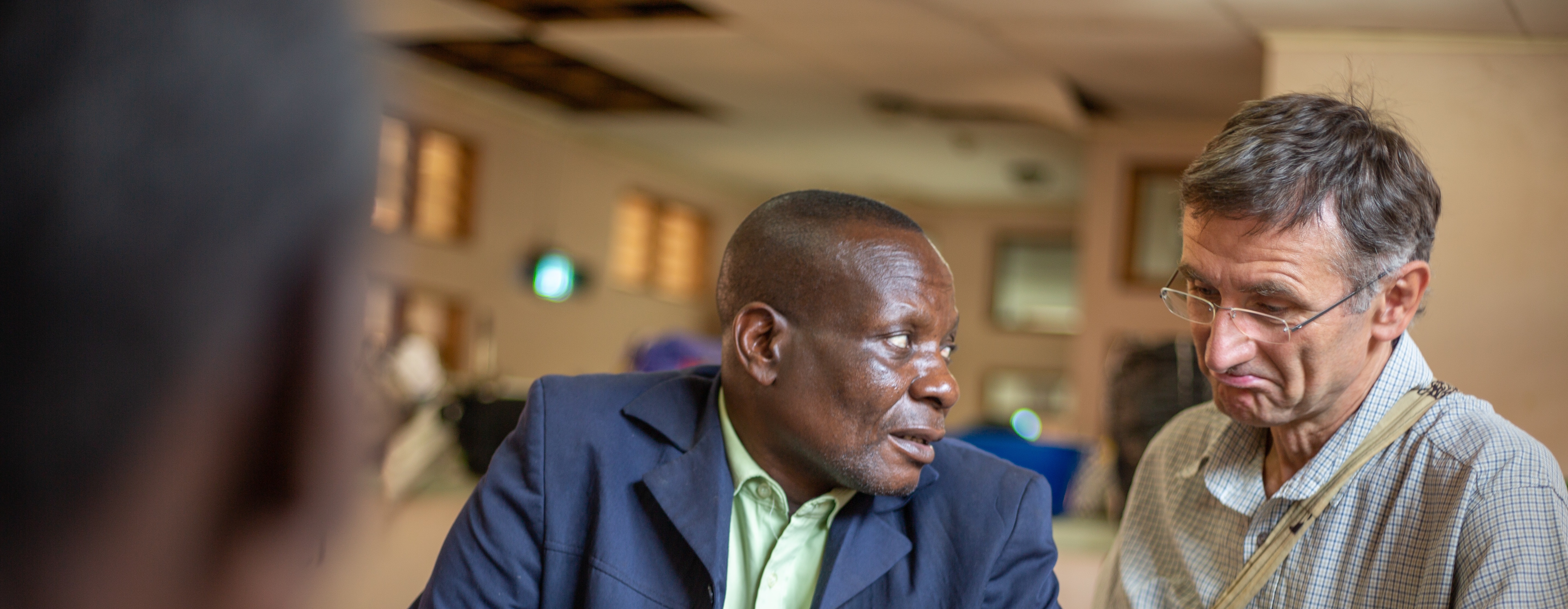
“We are in the process of setting up a telemedicine network.”
German hospital partners who are implementing projects in Malawi together with colleagues now exchanged information virtually within the framework of the GIZ program. They were all concerned about the current health situation on the ground.
"The Malawian health system has very limited resources and is under strain," reported Dr. Olaf Bach at a recent virtual meeting of the GIZ Hospital Partnerships funding programme. Bach, chief physician for Orthopedics, Trauma and Hand Surgery at the Sophien- und Hufeland-Klinikum in Weimar, began by telling the other German hospital partners about the impressions he gained during his last project trip to the landlocked Southeast African country. Bach was one of 13 participating German hospital partners who are active in Malawi. The exchange evening is one of the networking formats for the growing community of hospital partners of the GIZ funding program. It was moderated by Jan-Patrick Ostrowski and Liva Haensel.
Regular treatments and processes in the medical partner facilities are severely restricted by the Covid19 pandemic, many of them reported. For example, Malawian hospital staff would sometimes be absent themselves due to an infection with the new virus or would be withdrawn from their original specialist departments in order to concentrate on fighting the pandemic. This was mainly reported by Malawian colleagues. As a result, knowledge that had already been built up was lost, emphasized gastroenterologist Jörg Felber. Felber works at the Landshut-Achdorf hospital. Since the specialty of gastroenterology involves technology-intensive procedures, knowledge about the care of specific equipment such as endoscopes as well as procurement is also challenging, the hospital partner explained.
Prof. Dr. Faik Gelisken from the Eye Clinic at the University Hospital of Tübingen reported that the number of patients treated at his partner institutions had dropped significantly. In order to strengthen the treatment competencies and to enable further training, the hospital partners from Tübingen and Blantyre therefore regularly conduct virtual training courses for prospective ophthalmologists from Malawi and Germany. The training courses can be attended synchronously or accessed online afterwards. "This has helped us a lot during this Covid period," says Gelisken. And further, "We have permanent communication as a result."
Other Malawian-German hospital partners have also adapted to the challenging circumstances and expanded their project activities into the virtual space. "We are in the process of setting up a telemedicine network," said the neurosurgeon Prof. Dr. Thomas Kapapa from Ulm University Hospital. This will not only be used neurosurgically, but will also be available to other medical specialties. "For those of you who would like to participate, this is open to you," Kapapa appealed here to the other participants in the exchange.
The GIZ Hospital Partnerships funding program regularly organizes regional and thematic meetings for and with hospital partners. In order to stay in contact and to take advantage of support offers among each other, the GIZ team sends out documentation and contact data following each meeting after the participants have given their consent. In addition, all existing German-Malawian partnership projects can be found on the world map of the Hospital Partnerships funding programs, so that information on other hospitals in the region and direct contact with the project leaders is easy to implement (see here).
The hospital partners agreed that they would like to travel to Malawi again as soon as possible. However, travel opportunities vary in Germany from federal state to federal state and also institutionally. While some partners can only work together virtually for the time being due to regulations, others reported that they will travel to Malawi again in the coming weeks and months.
In order to exchange ideas again in a large group and to get to know further projects of the new funding rounds, the hospital partners finally expressed the wish to meet again in autumn. By then, some of the activities in Malawi may already have been implemented.